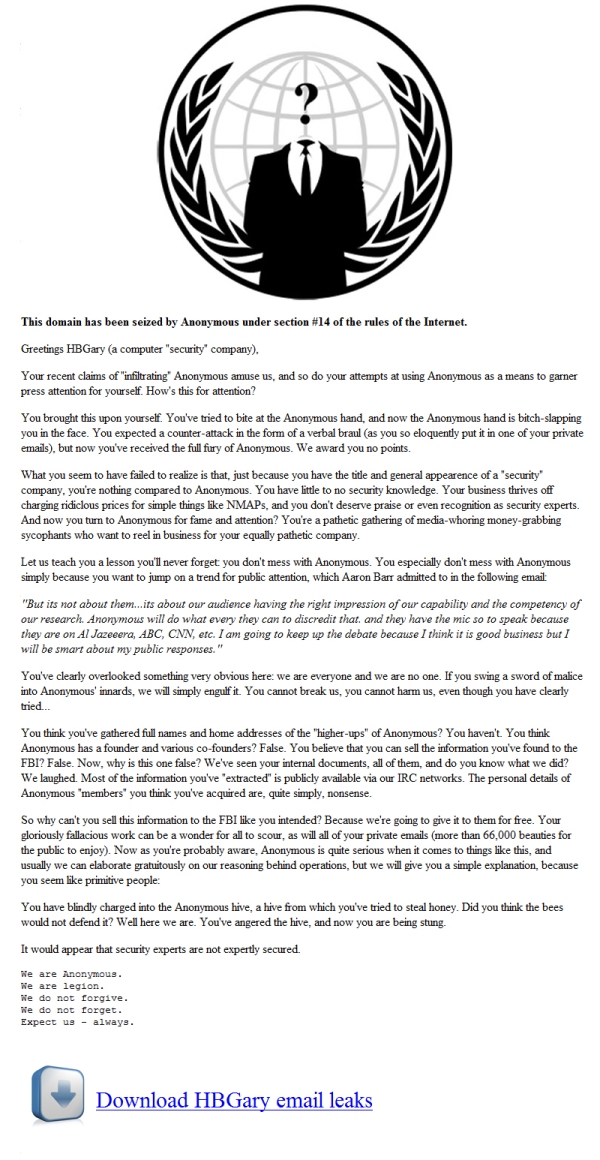While trying to come up with a blog topic involving technology, I was having trouble finding a single device or type of technology which I could write about that would continue to evolve and stay interesting over the course of the semester. Also, I needed to think of something which directly affected my technology experience. Sure, the next iPhone is going to come out and be better than the last, but these are incremental changes that only matter to those in the Apple sphere of influence. This was the problem I had with most potential topics. There was nothing which would be of importance to everyone reading my blog. Next, I thought of the internet, but realized that the structure of the web is pretty much unchanging, and that the content is what is evolving and interesting. That’s when I had my idea. What if, instead of writing about a certain technology that was created, I write about something which technology itself has brought into existence? It is within this line of thinking that I am going to focus my blog on the online phenomena known as Anonymous, and the developments that come of it.
So first and foremost, what exactly is Anonymous, and where did it come from? In the most basic sense, Anonymous is simply a constantly changing group of people from all over the world who engage in acts of internet vigilantism. This key characteristic of anonymity and constant change make it hard to define exactly who or what Anonymous is, and is a reason for why I find this subject so fascinating. However, what is really interesting about Anonymous is that it is almost as if the internet itself created this being. With the internet readily accessible to much of the world, people are able to organize and participate in synchronized actions almost instantaneously. Through the use of online chat rooms and various websites, this “hive-mind” is able to extract information and act upon it faster than even a group of dedicated researchers. Without the internet and these communication technologies, there is just no way such a group could exist.
While it may seem highly improbably that a bunch of completely random internet users could have any sort of technological clout, their most recent actions tell a very different story and also help explain why they are garnering increasing amounts of media attention. As of late, most of Anonymous’ actions have been categorized as cases of internet vigilantism, with recent attacks even disrupting companies such as Visa, MasterCard, and even the government of Tunisia! While Anonymous has been around almost as long as the modern internet has, they have really become prolific in acting out against situations involving technology, such as the entire Wikileaks debacle.
Only now are organizations starting to pay attention to the serious threat these “hacktivists” pose. While it had been assumed by the online community as a whole that Anonymous was merely a collection of self-righteous sixteen year old computer geeks, it is becoming quite apparent that some very technically-proficient people are becoming to get involved. The greatest indication of this is in the increase of size and sophistication of their cyber-attacks. In the past, Anonymous was known mainly as a type of internet bully. They would find personal information that had been posted online, and then flood the victim with phone calls and pizzas that had been ordered online. However, they have recently begun to harass websites and even hack into the databases of victims. Take for example, the recent Wikileaks drama that I mentioned earlier. After Wikileaks released thousands of confidential cables out into the ether of the internet, the United States government pressured companies which had helped Wikileaks to withdraw their support. Immediately, companies such as PayPal and MasterCard froze the renegade website’s funds. Almost just as immediately, Anonymous responded by using their weapon of choice on these websites, coordinated DDOS attacks. The attacks took down these and many other companies’ websites, and essentially brought their online business to a standstill.
What is so interesting about these actions is that they have created a type of online-warfare between groups such as Anonymous, and the companies who they have attacked. I believe it is incredibly important to understand what is going on right now not just because it involves a unique situation technology has caused, but because it is going to affect each and every one of us who use the internet. While the exact way this will happen may still be unclear, it is impossible to acknowledge that this will not play a future role in how cyberspace develops, and how we access internet-based technology.
Please feel free to comment and ask any questions. I'm interested to see if people feel the same way I do about how the internet is going to change as a result of this. Has anyone else heard of this group before?
